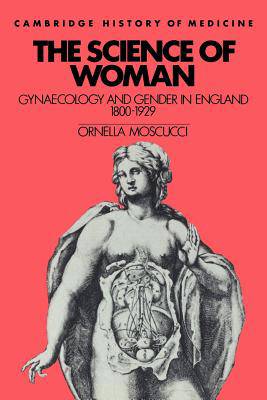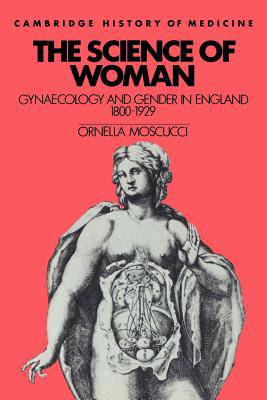
Je cadeautjes zeker op tijd in huis hebben voor de feestdagen? Kom langs in onze winkels en vind het perfecte geschenk!
- Afhalen na 1 uur in een winkel met voorraad
- Gratis thuislevering in België vanaf € 30
- Ruim aanbod met 7 miljoen producten
Je cadeautjes zeker op tijd in huis hebben voor de feestdagen? Kom langs in onze winkels en vind het perfecte geschenk!
- Afhalen na 1 uur in een winkel met voorraad
- Gratis thuislevering in België vanaf € 30
- Ruim aanbod met 7 miljoen producten
Zoeken
The Science of Woman
Gynaecology and Gender in England, 1800 1929
Ornella Moscucci, Moscucci Ornella
€ 73,95
+ 147 punten
Omschrijving
Is women's destiny rooted in their biology? Since the end of the eighteenth century the science of gynecology has legitimized the view that women are "naturally" fitted for activities in the private sphere of the family. This book argues that the definition of femininity as propounded by gynecological science is a cultural product of a wider, more political context. Providing a unique account of gynecology in practice, it shifts the historical focus from the use to the production of ideas about "women's nature." Dr. Moscucci traces the origins of gynecology to the emergence of a predictable "science of man" in the late eighteenth century and charts the ideological, professional and institutional development of the subject up to the foundation of the Royal College of Obstetricians and Gynaecologists in 1929. Case-studies of Victorian gynecological practice at two London hospitals illustrate the changing pattern of institutional gynecology, affording valuable insight into the relationship between gynecologists and patients. The book also stresses the equal importance of class and gender ideology in shaping medical views about women's diseases and their treatment.
Specificaties
Betrokkenen
- Auteur(s):
- Uitgeverij:
Inhoud
- Aantal bladzijden:
- 292
- Taal:
- Engels
- Reeks:
Eigenschappen
- Productcode (EAN):
- 9780521447959
- Verschijningsdatum:
- 22/07/1993
- Uitvoering:
- Paperback
- Formaat:
- Trade paperback (VS)
- Afmetingen:
- 153 mm x 228 mm
- Gewicht:
- 412 g

Alleen bij Standaard Boekhandel
+ 147 punten op je klantenkaart van Standaard Boekhandel
Beoordelingen
We publiceren alleen reviews die voldoen aan de voorwaarden voor reviews. Bekijk onze voorwaarden voor reviews.









